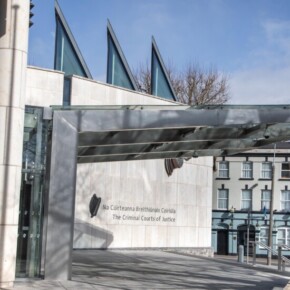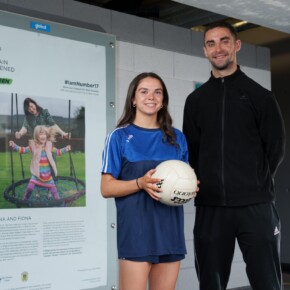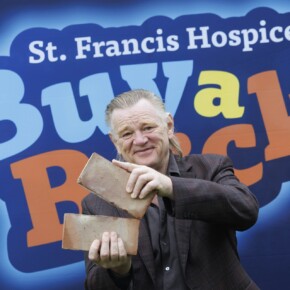The People’s Letters Page
Padraig Conlon 09 Sep 2022
Dear Editor.
In her letter (Dublin People Aug 25th) Lorna Vinall suggests that I organize a group to “further the cause of saving hares.” and opines that I am a “voice in the wilderness.”
While I accept that she means well I must clarify that there are several animal protection and conservationist groups campaigning for the protection of the Irish Hare and against hare coursing. The Irish Council Against Blood Sports (ICABS) for example has been lobbying politicians and mounting protests on the issue since 1966.
Of course the more public support these campaigns elicit the better. Any reader who feels strongly about what is happening to our native hare in coursing should contact his/her local TD and call for legislation to end this horror.
While it may seem sometimes that progress is far off it’s worth remembering that otter-hunting was banned in 1990 and stag hunting in 2010 thanks to the efforts of the many groups and individuals involved in pushing for an end to animal cruelty posing as “sport.”
So, with the greatest respect to Lorna Vinall, I am far from being a “voice in the wilderness.” Mine is but one of many voices and I hope that more people will join the call for change so that the hares of Ireland can run free in the countryside, safe from human predators, as nature intended.
Thanking you,
John Fitzgerald
Dear Editor,
Ahead of World Lung Day on Sunday September 25, I’m writing on behalf of a coalition of Irish lung health charities to let readers of the People know about five things that they can do to “Love Your Lungs”. We know from most recent statistics from the Central Statistics Office that the deaths of approximately a quarter of the 33,000 people who died last year were due to lung-related disease. But the good news is that there are steps that each of us can take to minimise our risk of lung problems in the future.
Firstly, get vaccinated. There are a range of vaccines/boosters to protect against lung disease. These include the ‘flu vaccine, the pneumonia vaccine and the COVID-19 vaccine.
Secondly, try to quit smoking. It’s far from easy but smokers can double their chances of success by making a quit plan and reaching out to your local smoking cessation clinic or calling the HSE Quit team on Freephone 1800 201 203. Prescription medication and over-the-counter nicotine replacements can further boost success rates in quitting for good.
Thirdly, avoid poor-quality air. Whether its fumes from traffic, smoking, heating or cleaning materials, or airborne allergens from pets, plants, dust mites and dampness/mould, you can do something about it. Why not think of car-sharing, using protection measures when cleaning, banning pets from your bedroom, and having good ventilation in indoor spaces if risky fumes and dusts could be present?
Fourthly, you are what you eat. A diet rich in fruit, vegetables, whole grains, nuts and fish, alongside foods with low-salt, low-fat dairy and healthy polyunsaturated and monounsaturated fats, will reduce the prospect of ill-health including lung disease.
Finally, shake those hips. Regular physical exercise reduces the risk of chronic conditions. Of course, lung disease makes people breathless much more quickly, but tolerable or mildly uncomfortable breathlessness is really healthy for even badly-diseased lungs. It improves outcomes, including heart outcomes, in people compared with those leading more sedentary lifestyles. The key is to take frequent breaks during exercise to catch your breath, then go again. Talk to your GP, nurse or physiotherapist about what level of activity is right for you. Buddy up with a friend – there’s strength, and motivation, in numbers.
For more information on the “Love Your Lungs” campaign, and the steps you can take, visit www.lunghealth.ie
Yours sincerely
Dr Marcus Butler
Consultant Respiratory Physician
Irish Lung Health Alliance
51 Bracken Road
Sandyford Business Park
Dear Editor,
Recently a Munster landowner was offered a choice of a burial site in God’s acre by a gang of hunters trespassing on his land.
As media reports continue to report the state of lawlessness in rural Ireland a radical approach to countryside policing is needed.
This will involve realigning existing personal and resources rather than the need for government expenditure. Namely switching the Irish Army to a rural policing role.
Our need for an army as a defending force has all the lethal threat of blank bullet in flight.
But since an army we have we might as well put it to operational use rather than its present role as an overseas police force.
The policing role would involve army units patrolling rural roads on a 24-hour basis with powers to stop, search and if required exercise reasonable force.
This would provide soldiers with on the ground training in areas like patrolling duties, navigating rural roads devoid of any road signage, dealing with the general public, etc.
Of course for the soldiers patrolling the rural roads of say, North West Leitrim, won’t attract the macho cred of patrolling the Golan Heights but in relative terms it will be safer.
In rural Ireland crime operating under legal and illegal cover is rampant.
Criminals know that the countryside is devoid of immediate policing cover.
Meeting a banshee would rate higher than meeting a Garda patrol.
Even more so when late at night unarmed Gardaí prefer not to be within trigger range of potentially armed individuals.
Having the Irish Army operating a rural policing role would add the iron hand needed to police rural Ireland.
It would give a rural dwellers a sense of security and a belief that they live in a society that is actually policed regardless of your postal code.
How lethal must rural crime become before the rule of law is restored.
Failure to act on rural crime might one day result in a landowner being reduced to a listing in the local death notices aired on the local radio station.
Yours,
John Tierney
Campaigns Director
Association of Hunt Saboteurs











